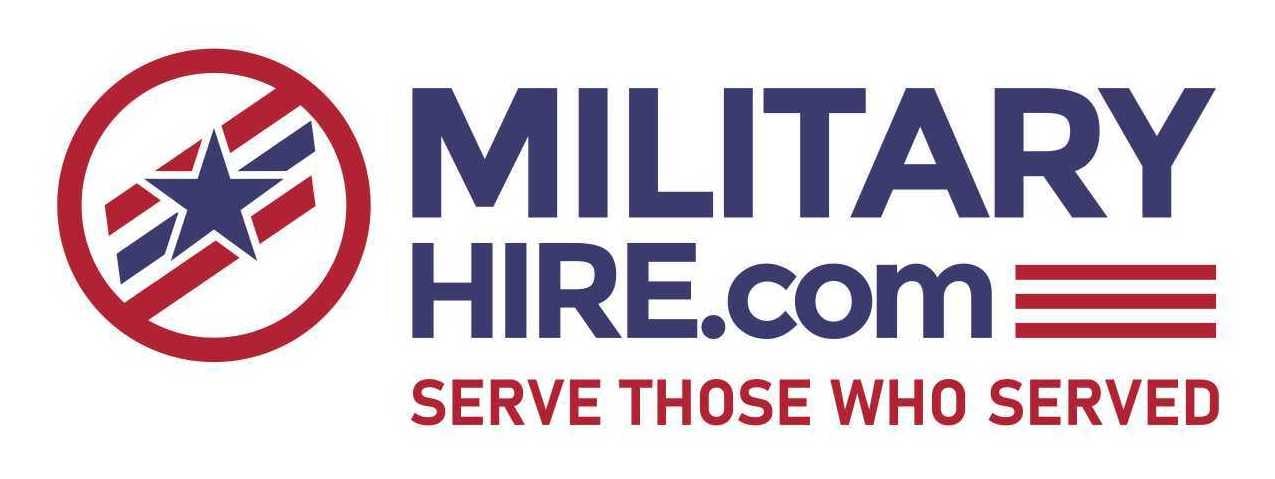What to Wear to My Interview?

It is estimated that around 200,000 men and women transition from the military each year. With that transition there are often periods of uncertainty. You see when you have worn the uniform for years, it can often be difficult to revert back to your post military attire. Your resume gets you the interview, and the attire that you chose to wear to the interview allows you to make that critical first impression.
What to wear to the interview? Surely this has to be one of the most daunting questions that plagues any job seeker. However for a service member who is transitioning from the military, this can really cause a headache. Let’s think about it. One outfit has practically been the main staple in your closet while serving in the military…your duty uniform. You really did not have to put too much thought into what you were going to wear each day because it was already predetermined for you. However, once you transition out of the military, it is not that cut and dry.
As a Career Counselor, I encounter around 300 transitioning service members on a daily basis. The vast majority are completely unaware of how to properly dress for an interview. For most service members, the military is their first “real” job after high school. So it is understandable if you are not sure as to what to wear or how to present yourself for an interview. The best advice that I often provide to my clients is to think of themselves as their own personal brand. They are responsible for the image that their brand projects.
It is proven to be more beneficial to begin working on your image during the transitioning process rather than after you transition. The first impression you give to an interviewer, even before you speak, will be preceded by the clothes that you are wearing. It is critical that you take the time to properly research how to dress for the position that you want. Remember this valuable old saying, “You never get a second chance to make a good first impression.”
I can recall going on my first interview after I transitioned from the Army. I literally had no idea as to what to wear for the interview. The only clothes in my closet consisted of my battle dress uniforms (BDU’s), shorts, t-shirts, dresses, and jeans. I conducted multiple searches on the Internet in order to gain a better understanding as to what to wear and what not to wear. And you want to know something? I still struck out. The position that I was interviewing for was located on Ft. Gordon and I decided to dress like the employees who were currently employed by the organization. Let’s just say that it was a bad idea.
I arrived to the interview fifteen minutes prior to my scheduled appointment time. I was ready and confident with my portfolio in hand. However, I really wasn’t ready. I chose to wear a white blouse, slacks, and my black shoes. My hair was neatly groomed and I wore a limited amount of jewelry. You may be thinking that my choice of attire seemed appropriate. Unfortunately it was not. I was dressed in business casual attire versus business professional. One of the key things to remember is that you cannot dress as though you have already secured the job. Securing the job offer is your ultimate goal and it begins with your attire.
Business Professional vs. Business Casual
Two of the most common ways to dress in the workplace are business professional and business casual. I often advise my clients to dress business professional for the interview. It is often the safest option for a candidate. However, it also depends on the industry that you are entering. For example: A client who is has an interview with a truck driving company may chose to dress business casual. This is why it is important to thoroughly research the industry as well as the organization. So what exactly does business professional consist of you may ask? The following are some basic guidelines for traditional business professional and business casual attire:
Business Professional (Men):
-Pressed Suit
-Button-downed Collared Shirt
-Tie (simple patterns)
-Matching Socks
-Dress Shoes
-Groomed Hair (including facial hair)
-Groomed Nails
-No Earrings
-No Cologne
Business Professional (Women):
-Pressed Pants Suit or Pressed Skirt Suit (knee-length)
-Button-downed Shirt
-Matching Dress Socks or Stockings (no patterns)
-Dress Shoes (2 inch heal max)
-Natural Looking Makeup
-Groomed Nails
-No Bulky Jewelry
-No Perfume
Business Casual (Men):
-Buttoned-downed Collared Shirt
-Tie
-Matching Belt
-Matching Socks
-Slacks
-Dress Shoes
-Groomed Hair (including facial hair)
-Groomed Nails
-No Earrings
-Light Cologne
Business Casual (Women):
-Blouse
-Pants, Skirt, or Dress
-Matching Socks or Stockings
-Dress Shoes
-Natural Looking Makeup
-Groomed Nails
-No Bulky Jewelry
-Light Perfume
Does My Choice of Attire Really Matter?
Yes! Yes! Yes! Once again, I think is important to reiterate that you should dress for the position that you want. One of the main reasons that an employer chooses not to hire a potential candidate is because of the attire that the candidate selected to wear for the interview. When a candidate dresses too informal for an interview, it is interpreted by the interviewer that the candidate does not take the position seriously. It is your job to show the interviewer that you are the best candidate for the position and honestly it begins by first selecting the proper attire.
Wearing the appropriate attire demonstrates to the company that you not only respect the organization, but you also respect the position that you are applying for. If you utilized a recruiting agency in order to land the interview, it is advised that you speak with the recruiter regarding the organization’s dress policy. The recruiter will serve as your eyes into the organization and will be able to help guide you on the right path.
I often have the opportunity to conduct mock interviews with clients in order to prepare them for an upcoming interview. Prior to the mock interview, I always advise my clients to dress in business professional attire. I have had clients to arrive to the interview in jeans, sneakers, wrinkled shirts, and even 4”inch stiletto heels. You have to take the interviewing process seriously. If your outer appearance does not suggest that you are taking the opportunity seriously, then the interviewer most likely will tune you out.
This also holds true of mock interviews. You have to view a mock interview as a practice round. Use this opportunity as a chance to make mistakes and learn from them. Unfortunately you will not have the opportunity to make those same mistakes during the real interview.
Dressing Professional Does Not Have to Cost a Fortune
Another valid concern of transitioning service members is how much will they have to spend on proper interview attire. I’m here to tell you that you do not have to spend a fortune for your interview attire. There are a variety of low budget clothing stores (ie, Target, Ross, Marshalls, JCPenny’s, and Burlington’s) that offer a great selection of blazers, slacks, skirts, dress shirts, and more. And the great thing is that you also have the option to mix and match a variety of pieces.
Save up to purchase a good pair of dress shoes. Steer away from wearing your patent leather military dress shoes. They are appropriate to wear with your military dress uniform, however, they are not appropriate to wear for an interview. Remember you are preparing to transition out of the military, therefore, all of your military attire should remain at home.
What Colors Should I Wear?
Black, gray, navy, and dark brown are considered to be the “safe” colors for an interview. These colors are often considered to be more conservative in nature and are less distracting. On one occasion there was a client who reported for a mock interview in a white suit and hot pink blouse. The focus then turned from listening to how she was responding to the questions, to her choice of clothing. Often I will receive pushback from clients who don’t understand why their choice of attire should matter if they are knowledgeable of the job that they are interviewing for. I’m sorry, but it does. Sure you may not like to wear a suit, a tie, or dress shoes, however, you will wear those things if you want the job. And remember, the interview will only last between 30 minutes to an hour. I believe that is a bearable sacrifice in order to obtain the position that you want. You have to constantly keep your end goal in mind.
How Should My Attire Fit?
Your attire should fit comfortably, but not overly loose. Tight clothing should be avoided at all times. A rule of thumb is that if you have to question if your selected attire is too tight, then most likely it is. You have to remember that the interview is the opportunity that you have been eagerly awaiting for and you do not want it to be ruined by an improper choice of clothing. When you purchase a new blazer or suit jacket, most likely it will have stitching at the back flap. This stitching is meant to be removed from the piece. Additionally, for women if your skirt has this stitching at the split, it must be removed as well.
It is advised that you not only examine how your attire fits while you are standing up, but you should also see how it fits when you are sitting down. Candidates are often sitting during an interview and clothing fits differently when you are sitting down versus standing up. You want to make sure that you are comfortable for the duration of the interview.
How Can a Mentor Help Me During My Transition?
During the transitioning process, it is highly encouraged that you seek a mentor sooner than later. A mentor is defined as an experienced and trusted advisor. Try to find a mentor who is in the same industry that you are seeking to enter. Your mentor will be able to provide you with tips on how to prepare for the interview and what to wear.
When I conduct transitioning seminars, one of the questions that I always ask is “Who needs a mentor?” The answer is…everyone. The next question is “Who has a mentor?” Usually only a few hands go up. If possible, try to select a mentor who has already transitioned out of the military. You will be able to identify with someone who has been in your shoes a lot easier versus someone who hasn’t. Your mentor will be able to assist you with preparing for the transitioning process.
But I Don’t Have a Mentor?
If you do not have a mentor, all is not lost. You can utilize the services of a variety of military transitioning programs such as the Soldier for Life Transition Assistance Program (SFL-TAP). This program prepares transitioning service members for civilian life 18 months in advance for service members who are ETSing and 24 months in advance for service members who are retiring. Upon separation from the military, service members are still able to receive SFL-TAP services for 180 days after separation if ETSing and for life for retiring service members.
It is important to remember that you are not alone in this process. The great thing is that you have access to federal programs, are able to conduct Internet searches, and can visit MilitaryHire.com in order to get support. Our main objective is to ensure that you have a successful transition and that begins with ensuring that you are prepared.

About the Author
Arica Urena is an accomplished writer and proud U.S. Army Veteran. She currently assists over 300 transitioning service members weekly as a Career Counselor. Arica strives to ensure that all service members are ready for each phase of the transitioning process by providing comprehensive guidance and training. Arica was recognized as the Grand Prize Winner for the “2012 Gatorade Honoring our Heroes” essay contest while stationed at Pearl Harbor, Hawaii. Currently she volunteers as a Freelance Writer for the “Fort Campbell MWR Life” and “Fort Campbell MWR Life for Retirees” Magazine.
Connect with Arica on LinkedIn
MILITARYHIRE HAS JOBS FOR VETERANS
Three steps to success:
-
Sign Up. You’ve served your country. Now let us serve you. Sign up now—it’s free, quick, and easy.
SIGN UP TODAY -
Post Your Resume. Be found by hundreds of veteran friendly companies—post your resume! Don’t worry if it’s not perfect—you can easily update it later!
POST YOUR RESUME -
Search Jobs. Don’t wait for companies to find you. Set up automated Job Scouts to scour our database and notify you of new jobs.
SEARCH JOBS NOW
